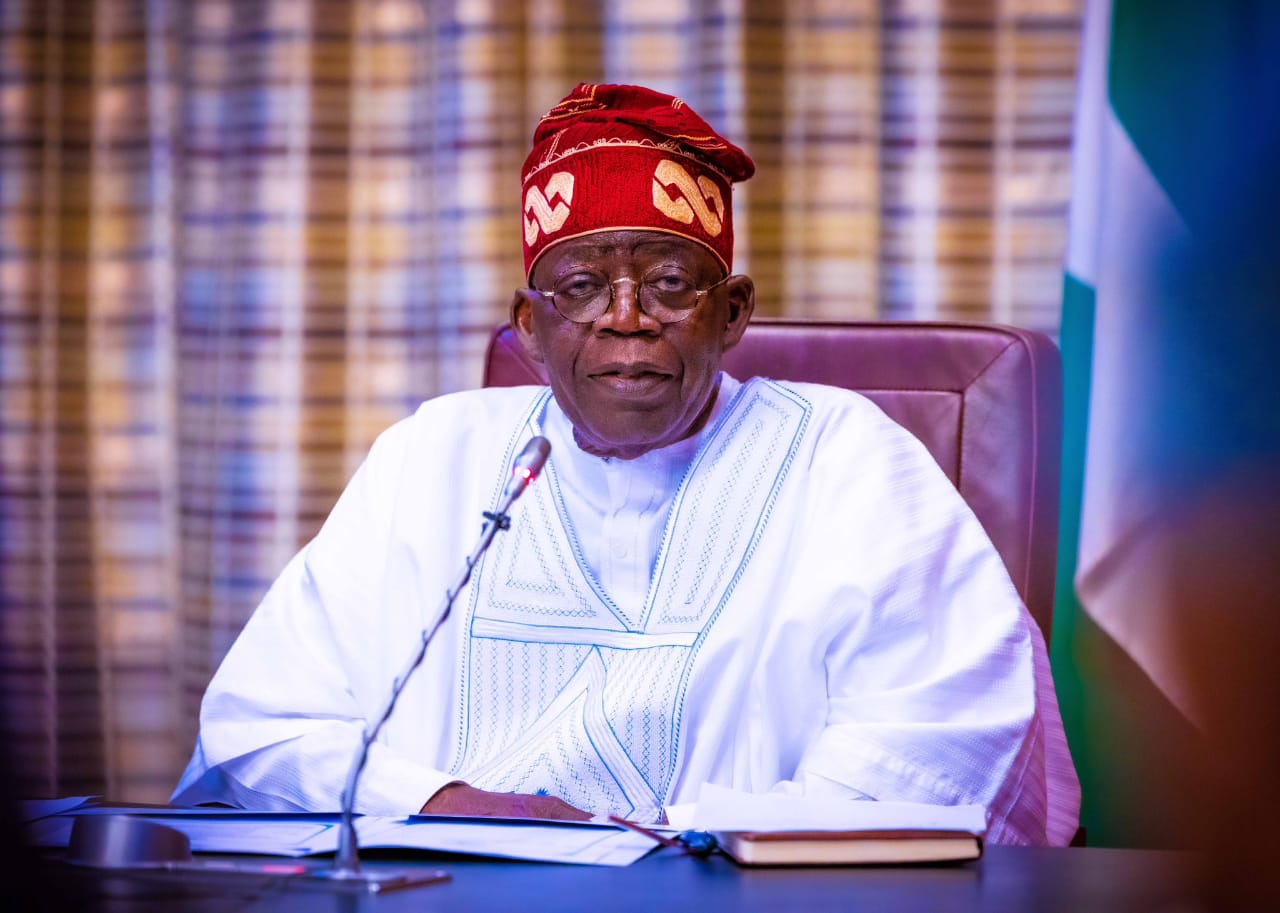COVER
Zenith Bank Holds Tech Fair in Lagos on Thursday

The Fourth Edition of the Zenith Bank Tech Fair, tagged “Future Forward 4.
0: Embedded Finance, Cybersecurity & Growth Imperatives – The Impact of AI”, is set to hold on Thursday at the Eko Convention Centre, Eko Hotels & Suites, Victoria Island, Lagos.The fair will showcase leading technological innovations that cut across Artificial Intelligence, Cybersecurity, Risk Management, Compliance, Financial Intelligence, Cloud Computing, and Communication Technologies, among others.
The event will also feature a Start-up Pitch Competition – Zecathon – to identify innovative startups, panel discussions, masterclasses and exhibitions.Among the rich lineup of activities, the event will feature opening remarks by Jim Ovia, Founder and Chairman of Zenith Bank and a welcome address by Dr Adaora Umeoji, Group Managing Director of Zenith Bank Plc.
There will also be a goodwill message to be delivered by the Vice President of Nigeria, Kashim Shettima and the Governor of Lagos State, His Excellency, Mr. Babajide Sanwo-olu.
The keynote address, Banking Transformation in a Digital World, will be delivered by Robin Speculand, a renowned Strategy, Digital Implementation Specialist. Other prominent IT practitioners who represent top global brands will make presentations.
These include: Danillo McGarry, Global Expert in Digital Transformation & AI; Jania Okwechime, Partner, Africa, AI & Data, Deloitte and Rupert Nicolay, Director, Microsoft Worldwide Financial Services, amongst others.
The panel discussion which has Wole Odeyele, Client Technology Lead for Microsoft Inc. as its host, will feature six discussants including Ada Jabaru, Founder & Director, Nistad Limited; Funke Opeke, Founder & Chief Executive Officer, MainOne; Guy Futi, Chief Executive Officer, Orda; Dr Auwal Adam Sa’ad, Founder, ZamzamPay; Kashifu Inuwa Abdullahi, Director General, National Information Technology Development Agency (NITDA), and Engr. Bisoye Coker-Odusote, Director General/Chief Executive Officer, National Identity Management Commission (NIMC).The masterclass will be divided into seven different classes, and facilitated by key industry players that cut across renowned tech giants such as: Microsoft, Oracle, CyberSoc, IBM, Google, Huawei & Amazon Web Services.
COVER
FG Plans N350bn Bond Auction Increase

By Tony Obiechina, Abuja
The Federal Government, through the Debt Management Office (DMO), has announced plans to raise N350bn via a bond auction, reinforcing its commitment to securing long-term funding for national development.
According to a notice by DMO, the auction scheduled for yesterday, would see the reopening of two previously issued Federal Government Bonds: the 19.
30 per cent FGN April 2029 bond with an offer size of N200bn and the 18. 50 per cent FGN February 2031 bond, offering N150bn.The settlement date for successful bidders is set for February 26, 2025.
This issuance aligns with the government’s broader strategy of raising capital to finance national projects while providing investors with a stable and secure investment opportunity.
The bonds are offered in units of N1,000, with a minimum subscription of N50,001,000. Subsequent investments must be in multiples of N1,000. While the coupon rates remain fixed at 19.30 per cent and 18.50 per cent for the 2029 and 2031 bonds, respectively. The final price paid by investors will depend on the yield-to-maturity bid clearing the auction volume.
Investors will also be required to cover any accrued interest from the last coupon payment date to the settlement date.
Bond interest payments will be made semi-annually, ensuring steady returns for investors. Upon maturity, the principal will be repaid in full via bullet repayment, meaning the entire face value is disbursed at once.
These bonds qualify as government securities under Nigerian tax laws, making them highly attractive to institutional investors such as pension funds and insurance companies. Under the Company Income Tax Act (CITA) and the Personal Income Tax Act (PITA), pension funds and other qualified institutional investors are eligible for tax exemptions.
Additionally, the bonds meet the requirements of the Trustee Investment Act, allowing trustees to allocate funds confidently. Listed on both the Nigerian Exchange Limited (NGX) and the FMDQ OTC Securities Exchange, the bonds offer investors the flexibility to trade them in the secondary market.
Investors interested in participating in the bond auction can do so through Primary Dealer Market Makers (PDMMs) authorised by the DMO. These financial institutions include major banks such as Access Bank, First Bank of Nigeria, Stanbic IBTC Bank, Citibank Nigeria, Guaranty Trust Bank, and Zenith Bank, among others.
With this latest bond issuance, the federal government continues to reinforce its fiscal management strategy, offering a secure and structured investment opportunity while addressing national funding needs.
COVER
Tinubu Congratulates Aiyedatiwa on Second Term as Ondo Governor

President Bola Tinubu has congratulated Lucky Aiyedatiwa, who was sworn in yesterday for a second term in office as Governor of Ondo State.
Aiyedatiwa was inaugurated on Monday, at the Ondo State Sports Complex in Akure, as the 7th governor of Ondo State, succeeding the late Rotimi Akeredolu
In a demonstration of his commitment to reformative justice, Aiyedatiwa announced the pardon of 43 convicts to celebrate the occasion, reflecting a humane approach to governance.
Additionally, the new governor appointed Dr. Taiwo Fasoranti, son of the Afenifere leader, as his Secretary to the State Government, reinforcing his administration’s focus on collaboration and leadership continuity.
Meanwhile, Speaker of the Ondo State House of Assembly, Chief Olamide Oladiji, conveyed strong confidence in Aiyedatiwa’s development plans, emphasizing the potential for significant transformation in the state.
The ceremony came up two months after Aiyedatiwa won the governorship election on the platform of the All Progressives Congress (APC).
Aiyedatiwa took his oath of office just after his running mate Olayide Adelami around 12:59 pm.
The governor thereafter, rode in an open van around the complex, waving to cheers from supporters.
The inauguration completes the succession process in the Sunshine State, with Aiyedatiwa expected to head the next administration which will lead the state in the next four years.
To arrive here, Aiyedatiwa had to overcome a stiff competition from another former deputy governor of the state, Agboola Ajayi, who contested against him on the platform of the Peoples Democratic Party (PDP).
Aiyedatiwa’s stay at the Government House in Alagbaka, Akure, was extended when he was declared winner of the November 16, 2024 governorship election by the Returning Officer, Olayemi Akinwumi, who is also the Vice-Chancellor of the Federal University, Lokoja, Kogi State.
The APC candidate polled 366,781 votes to defeat his closest rival Ajayi, who scored 117,845 votes, more than twice lower than Aiyedatiwa.
The final results showed that the APC won the election in a landslide, clearing all 18 local government areas.
A former deputy governor, Aiyedatiwa ascended to power on December 27th, 2023 after Governor Rotimi Akeredolu’s death.
Akeredolu died after a lengthy battle with illness and had before his demise transmitted power to Aiyedatiwa.
He, thereafter, won the APC’s ticket for the 2024 governorship election in Ondo, pitting him against 17 other candidates including Ajayi who was also a former deputy to Akeredolu during his first term in office.
Tinubu Congratulates Aiyedatiwa
Congratulating Aiyedatiwa via a statement signed by his Spokesperson, Bayo Onanuga, Tinubu urged the governor to use his mandate to serve the people of the state and build upon the legacy of his predecessor, the late Gov. Rotimi Akeredolu.
“I congratulate you on your successful inauguration today for a new term of office after an outstanding run in the last governorship election in Ondo State.
“You have the rare privilege to succeed your illustrious predecessor, who worked for the growth and development of the state and advanced the progress of Nigeria as a whole,” Tinubu said.
The President further urged Aiyedatiwa to work in the best interest of the people of Ondo State and the nation.
“I will be your partner in progress to usher in a new era of prosperity to the people of Ondo State,” Tinubu added.
Governor Pardons 43 Convicts to Mark Inauguration
Gov. Lucky Aiyedatiwa of Ondo State on Monday pardoned 43 convicts to celebrate his swearing-in as governor.
This is contained in a statement issued by his Spokesperson, Mr Ebenezer Adeniyan in Akure.
The government said the pardon follows the recommendation by the State Advisory Council on the Prerogative of Mercy, chaired by the Attorney General and Commissioner for Justice, Mr Kayode Ajulo.
“As part of this initiative, the governor has ordered the outright release of eight individuals who were previously incarcerated.
“Additionally, 15 condemned inmates who were sentenced to death by hanging have had their sentences commuted to various prison terms, while 20 other convicts serving life imprisonment have also had their sentences adjusted to more lenient terms.
“This momentous decision was made to commemorate Governor Aiyedatiwa’s swearing-in today, reflecting his commitment to reformative justice and humane governance,” the government said.
The governor’s action, it added, aligns with his ongoing efforts to address issues within the penal system and to promote the reintegration of individuals into society as productive members.
Aiyedatiwa Appoints Pa Fasoranti’s Son as SSG
Gov. Lucky Aiyedatiwa of Ondo State has appointed Dr Taiwo Fasoranti as the Secretary to the State Government (SSG).
Taiwo is the son of Pa Reuben Fasoranti, the leader of pan Yoruba socio-cultural group, Afenifere.
The appointment is contained in a statement by the Chief Press Secretary to the Governor, Mr Ebenezer Adeniyan, on Monday in Akure.
Until his appointment as SSG, Fasoranti, who hails from Akure South Local Government, was the Chairman of the Ondo State Hospitals Management Board.
The governor also reappointed Dr Kayode Ajulo as Attorney-General and Commissioner for Justice, and Mrs Omowunmi Isaac as Commissioner for Finance.
Aiyedatiwa also approved the appointment of four Special Advisers; Engr Johnson Alabi on Power; Seun Osamaye on Women Affairs; Mr Bola Taiwo on Union Matters and Special Duties; and Prof. Simidele Odimayo on Health.
The governor said the Senior Special Assistant on Infrastructure, Lands and Housing, Engr. Abiola Olawoye, had been elevated to the position of Special Adviser on Infrastructure, Lands and Housing.
Aiyedatiwa urged the appointees “to hit the ground running by providing effective and efficient services to the people of Ondo State.”
He said that all appointments were with immediate effect.
Ondo Speaker Hails Aiyedatiwa’s Development Plan
The Speaker, Ondo State House of Assembly, Chief Olamide Oladiji, has said that the development plans of Gov. Lucky Aiyedatiwa would bring all round transformation to the state and prosperity for all.
In a congratulatory message to the governor and his deputy, Dr Olayide Adelami, on Monday in Akure, Oladiji attributed the landslide victory in the last governorship election to their unwavering passion for development across the various sectors of the state in the last one year.
“Mr Governor, your exemplary leadership and commitment to advancing the cause of peace, healthcare, security and education remain a legacy for generations to come,” Oladiji said.
He felicitated the governor and his deputy, wishing them greater accomplishments in the next four years.
COVER
Arewa Think Tank, other Stakeholders Back Tax Reform Bills

By Eze Okechukwu, Abuja
Critical stakeholders, including the Arewa Think Tank, who participated in a public hearing over the contentious Tax Reform Bills yesterday in Abuja have all thrown their weight behind the proposed legislation.
The massive support came four months after President BolaTinubu forwarded the bills to both Chambers of the National Assembly for consideration and passage.
Their positions were made known during the public hearing conducted by the Senate Committee on Finance, where the Arewa Think Tank led by Muhammad Alhaji Yakubu emphatically debunked insinuations that the Northern part of the country was against the proposed laws.
In his opening remarks, the Senate Committee Chairman on Finance, Senator Sani Musa (APC, Niger East) said Tinubu had in a meeting a few days ago requested the National Assembly to present him with workable laws from the bills including (i) The Nigeria Tax Bill 2024; (ii) Nigerian Tax Administration Bill 2024; ( iii) Nigeria Revenue Service Establishment Bill 2024 and ( iv) Joint Revenue Board Bill 2024.
” I met President Bola Ahmed Tinubu two days ago on the tax reform bills and he told me “Mr Chairman, Senate Committee on Finance, go and do the needful.
” Give me a law that is workable from the tax reform bills I forwarded to the Senate and the House of Representatives in October last year .
” That request by Mr President came at a very auspicious time of this public hearing on the tax reform bills which are not meant to add burden to any section of the country or give undue advantage to any section as well “, he said .
It would be recalled that strident opposition against the bills was mounted by various groups last year, which made it difficult for the House of Representatives to pass it for second reading, while the Senate managed to do so last November 28.
However, at the public hearing declared open by the President of the Senate , Senator Godswill Akpabio, all oppositions against the bills melted as stakeholders one after the other supported the proposed laws .
The first to make submission, was the Minister of Finance and Coordinating Minister of the Economy, Wale Edun, who said that the proposed laws were not aimed at taxing poverty but prosperity.
” The tax reform bills , as repeatedly explained at different fora since their introduction last year, are for modernization of our archaic tax laws towards effecting efficiency, equity and economic growth ” , he said .
Making similar submission , the Group Chief Executive Officer ( GCEO ) of the Nigerian National Petroleum Company Limited ( NNPCL) , Mele Kyari said the entire oil and gas industry is well disposed to the reform .
” The proposed tax reform bills to us in NNPCL are very necessary and will enhance economic growth through more efficient and effective tax collection mechanism .
” As the largest tax payer in Nigeria , NNPCL has studied the reform bills , and found the proposals to be reasonable and necessary”, he said .
Toeing similar line in his own presentation , the Chairman of Revenue Mobilisation Allocation and Fiscal Commission ( RMAFC), Mohammed Shehu made a U – turn from earlier stance on the bills , by supporting them wholly.
He said ” RMAFC is in support of the proposed tax reform but wants adjustments in the in the area of Value Added Tax ( VAT) distribution to sub nationals .
” We hope that the proposed reform , will address the issue of endless revenue remittance reconciliation with NNPCL and others “.
The Chairman of Fiscal Responsibility Commission , Victor Muruako also supported the proposed reform bills by declaring that they are in tandem with the spirit and letters of the Fiscal Responsibility Act 2007.
In their separate presentations , the convener of Arewa Think Thank , Muhammad Alhaji Yakubu and representative of President of Supreme Council for Sharia in Nigeria, Professor Mohammed Bello Dogarawa debunked the insinuation that the North was against the reform bills .
Specifically, the Convener of Arewa Think Tank said ” It is not true that the North is against the tax reform bills . We have seen the benefits and sensitized our people in the North on them “.
Earlier in his remarks before declaring the public hearing open , the President of the Senate said : ” The challenge before us transcends the simple act of passing new laws; it is about constructing a tax system that inspires confidence, promotes development, and fuels national growth. We cannot afford to be fragmented in our approach to revenue generation. Instead, we must come together—Federal, State, and Local Governments, alongside the private sector and civil society—to create a tax system that truly works for all”
Other Critical stakeholders like the Executive Chairman of Federal Inland Revenue Service ( FIRS) , Zacch Adedeji , the Governor of the Central Bank of Nigeria, Yemi Cardoso, the Comptroller – Generals of Nigeria Customs Service and Nigeria Immigration Service will make their submissions today during the conclusion of the public hearing.




















